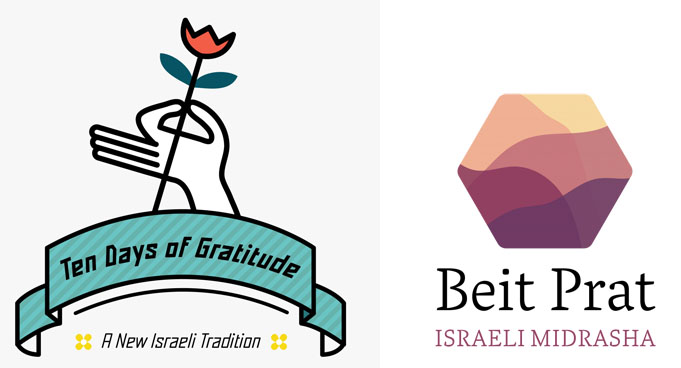The Days of Gratitude initiative was originally started by alumni of Beit Prat in Israel as “Ten Toda,” ten days of gratitude which are held at a very specific time: starting with Holocaust Memorial Day, through Memorial Day for Israel’s Fallen Soldiers and ending with Israeli Independence Day. In Israel, this is a very intense national period: Commemorating the serious and deep loss of the Holocaust merges with mourning the many soldiers, members of other security forces, and terror victims who lost their lives in order for the State to exist. It is a time that affects many people on a very personal level. This is not only some vague memory of the past, but vivid mourning of actual family members and close friends who have been lost. There is hardly a single home that does not have a first- or second-degree connection.
This is seemingly a strange time to choose to celebrate gratitude. While gratitude on Independence day seems fitting — expressing thanks for the miracle of the existence of the State of Israel — why would one choose to celebrate gratitude on days of mourning and remembrance?!
Two of Israel’s leading rabbinic figures grapple with this question and share their personal ways of incorporating gratitude into this time period.
Watch Rabbi Benjamin Lau, a second generation Holocaust survivor, as he finds inspiration from the prophet Isaiah on the ability to express gratitude in the face of difficulty:
For English subtitles, please click on the CC button on the video’s control panel.
Watch Rabba Tamar Elad Applebaum, who lost her brother in the IDF, as she grapples with the dissonance between personal and national loss and the ability to give gratitude:
For English subtitles, please click on the CC button on the video’s control panel.
After watching the videos, think of how you relate to gratitude in times of difficulty — both personal and national:

These videos have been created by the Israeli Days of Gratitude initiative, which was founded
by alumni of Beit Prat — Israeli Midrasha. We are grateful for their inspiration and partnership.
